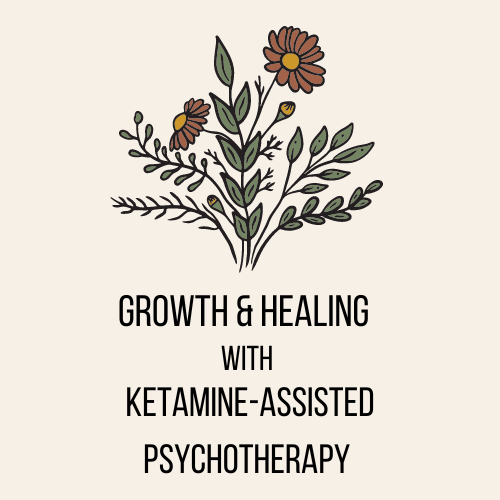Holistic Healing with Ketamine-Assisted Psychotherapy
What is Ketamine?
Ketamine is a dissociative anesthetic that has been used in medical settings for decades. In recent years, it has garnered attention for its potential in therapeutic settings, particularly in the field of psychedelic-assisted psychotherapy. Unlike traditional antidepressants, which can take weeks to show effects, Ketamine can provide rapid relief from depressive symptoms. But its therapeutic potential extends beyond just pharmacological effects and neuro-plasticity; it can induce altered states of consciousness that facilitate deep introspection, emotional processing, and spiritual exploration.
Is Ketamine Safe?
Safety is a paramount concern when it comes to any therapeutic intervention. When administered in a controlled setting by trained professionals, Ketamine can be relatively safe. However, it is not without risks. The key to its safe use lies in careful client selection, thorough screening of medical history, and close monitoring during sessions. Ensuring a supportive environment where vital signs and psychological responses are closely observed is crucial. This holistic approach acknowledges the importance of addressing the mind, body, and spirit to provide a safe and effective therapeutic experience.
What Mental Health Conditions are Treated with Ketamine-Assisted Psychotherapy?
Ketamine-Assisted Psychotherapy (KAP) is used to treat a variety of mental health conditions, leveraging its unique pharmacological properties and the therapeutic potential of altered states of consciousness. Some of the conditions that can be addressed through KAP include:
1. Depression: In KAP sessions, Ketamine's rapid antidepressant effects can provide quick relief, especially for those who have not responded to traditional treatments.
2. Anxiety: The dissociative effects of Ketamine in KAP sessions can help individuals gain new perspectives on their anxiety, facilitating deeper understanding and emotional processing.
3. PTSD (Post-Traumatic Stress Disorder): KAP can help individuals process traumatic memories in a safe and controlled environment, aiding in the reduction of PTSD symptoms.
4. OCD (Obsessive-Compulsive Disorder): KAP may help reduce the intensity of obsessive thoughts and compulsive behaviors, providing relief and a new perspective.
5. Substance Use Disorders: KAP can help individuals explore the underlying causes of their addiction, facilitating emotional healing and supporting recovery efforts.
A Relational, Holistic, Mind-Body Oriented Approach
The holistic approach of KAP acknowledges the interconnectedness of the mind, body, and spirit. This perspective recognizes that addressing mental health involves more than just alleviating symptoms; it requires addressing the whole person. KAP sessions aim to create a therapeutic environment that supports profound healing experiences, integrating psychological insights, emotional release, and bodily awareness.
In a KAP session, the relational aspect is paramount. The therapeutic alliance between the therapist and the client provides a foundation of trust and safety, enabling the client to explore deep emotional and psychological territories. The holistic nature of the therapy encourages a balance of mind and body, recognizing that true healing involves addressing emotional, cognitive, and physical aspects of well-being.
Conclusion
Ketamine-assisted psychotherapy offers a promising and innovative approach to treating a variety of mental health conditions. By inducing altered states of consciousness, it facilitates deep introspection and emotional processing, providing rapid relief for conditions like depression, anxiety, and PTSD. When administered safely and effectively within a holistic, mind-body-oriented framework, KAP can offer profound healing experiences that address the interconnectedness of mind, body, and spirit. As we continue to explore and understand its potential, KAP represents a significant advancement in the field of mental health therapy, offering hope and healing to those in need.
Are you interested in learning more about Ketamine-assisted psychotherapy (KAP) sessions?
Reach out to me here.
